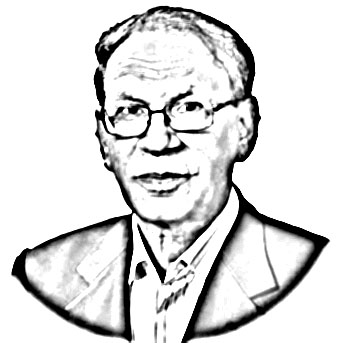Mohammad Jamil
PAKISTAN Tehreek-e-Insaf (PTI) government led by Prime Minister Imran Khan presented on Tuesday its two-year performance report through various ministers, reviewing its achievements in realms of governance, economy and foreign policy. The ministers claimed that the government stabilized economy after inheriting the worst economic mess whereby trade deficit was $ 38 bn and current account deficit $ 18 bn in 2017-18, the last year of PML-N government. It met Indian threat after Balakot episode with courage and managed the COVID threat by successfully balancing lives and livelihoods. “Various economic indicators suggest that the country is moving forward. Pakistan’s economic performance has been recently hailed by international organizations such as the IMF, Moody’s and Fitch while Pakistan Stock Market has been recognized as the best performing market by Bloomberg”, said PM’s Adviser for Finance Abdul Hafeez Sheikh.
Highlighting the diplomatic achievements, Foreign Minister Shah Mahmood Qureshi said “a dramatic shift can be seen from diplomatic isolation to effective representation,” after the PTI government took over in August 2018. Despite India’s attempt to isolate Pakistan at regional and international forums, PM Imran Khan raised the Kashmir dispute at the United Nations General Assembly (UNGA) and other platforms forcefully. Pakistan has played a pivotal role in the intra-Afghan dialogue, which is likely to be held soon. Pakistan’s relationship with China is evolving into a strong economic partnership, as the second phase of CPEC included industrialization after completion of first phase of building infrastructure. Special Assistant on Poverty Alleviation Dr Sania Nishtar gave a detailed briefing on the Ehsaas Programme stating that it was the country’s biggest ever social safety net – emergency cash disbursement of Rs145 billion among 12 million daily wagers.
On the other hand, the main Opposition parties, PML-N and PPP criticized the PTI government’s performance terming it an unmitigated disaster. PML-N chief and leader of the Opposition in the National Assembly Shehbaz Sharif remarked that Imran Khan’s mismanagement of national affairs increased the woes of the masses manifold, and blamed the PTI government for a massive decline in GDP. PPP Chairperson Bilawal Bhutto Zardari took to twitter to lambaste PTI’s performance. “Two years in power, Imran Khan has given us the worst economy in our country’s history, foreign policy failures from Kashmir to Saudi Arabia, democracy and human rights suffering, unemployment is at an all time high, and Transparency International said corruption is higher than before,” he tweeted. Meanwhile, PM Imran Khan in his interview with Kamran Khan recounted achievements and gave reasons of the lack of progress in some sectors due to attitude of the opposition.
However, PTI government took right policy decisions for reviving the economy, as their implementation has started bearing fruit, which is obvious from the economic indicators. The government measures included documentation of economy to increase tax revenue, discouraging luxury imports and increase in exports to control trade deficit. The interbank market rupee has stabilized around Rs 166 per US dollar; and the KSE-100 index has crossed 40000 points, which shows confidence of investors. Due to the flawed economic policies of the previous governments, Pakistan’s external debt had mounted to around $90 billion; economic reserves (including SBP and commercial banks) had declined to $12 bn, not enough for even three months imports. As regards payment of installments of previous loans, the country was on the verge of default. Therefore, Prime Minister Imran Khan had to approach Pakistan’s friends Saudi Arabia and the UAE, and with their help Pakistan averted the default due to his efforts.
In Pakistan, the myriad political and religious parties, intellectuals, pseudo-intellectuals, or government and the opposition parties have variegated stances and perceptions about various issues and challenges facing the country. But there appears to be a consensus that Pakistan is facing a multifaceted crisis, and it is the result of ruling elite’s lust for power and flawed decisions over half a century. If dispassionate appraisal is made it will not be difficult to understand that politics of power and pelf by leaders has brought country to present pass. They have been giving over-riding consideration to their personal over national interest and except a few proverbial exceptions they lacked vision and wisdom. During the last 73 years, no serious effort was made by political leaders to promote democratic culture in their parties with a view to inculcating spirit of tolerance and establishing democratic traditions.
They have to understand that the essence of democracy lies in dissension and conciliation over evolving issues and amidst ever-changing alignments. In other words, difference of opinion, dissent and protest are parts of a democratic polity, and the opposition has the right to oppose the government policies. But criticism should not be for the sake of opposition, and suggestion should be made for solution of problems. Having all said, one has to acknowledge that most developing countries face leadership crises because they were once colonies and the people lacked experience of building up democratic parties. The colonists also did not allow the people to organize, and as is the case in a feudal society, landlords, pirs, waderas and sardars rule the roost. Anyhow, credit goes to Imran Khan for making a dent in dynastic politics, and it is the first time that big and mighty are facing the courts. But to remain relevant, PTI government has to take measures to reduce the prices of essential items of daily use and lower electricity tariff to give relief to the consumers and also to the industry to make it possible that it can compete with other countries in the international market. In his interview with Kamran Khan, he gave reasons for the failure in nabbing the mafias, but people will judge the performance of the PTI government vis-à-vis how far it has been able to solve their problems.
—The writer is a senior journalist based in Lahore.










